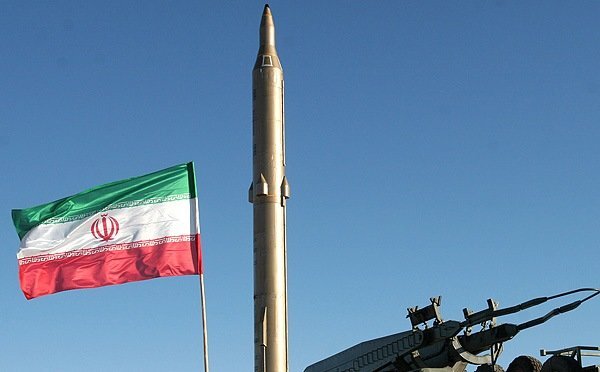Iran rejects claims it is willing to talk its missile program

TEHRAN – Iranian Foreign Ministry spokesman Abbas Mousavi has rejected claims about Iran’s willingness to hold talks on its missile program.
His comments came as the Associated Press published a report on Tuesday claiming that Iranian Foreign Minister Mohammad Javad Zarif seemed to suggest Tehran’s ballistic missile program could be up for negotiations with the U.S. in an interview with NBC News.
Immediately after the report, U.S. Secretary of State Mike Pompeo also claimed that Iran had “for the first time” shown its willingness to discuss the weaponry.
In response, in a tweet on Tuesday, Mousavi said, “Zarif threw the ball into the U.S. court and challenged the U.S. sale of weapon to the regional counties instead of adopting defensive stance. Iran and Mohammad Javad Zarif’s position on the country’s missile capabilities are clear.”
Iran’s Mission to the United Nations also issued a statement saying, “We categorically reject the AP's characterization of Foreign Minister Zarif’s comments to NBC News that ‘if the U.S. wants to talk about missiles, it should stop selling weapons, including missiles, to regional states’ as meaning that Iran is willing to negotiate on its defensive missile program at some point. Iran's missiles and its missiles are absolutely and under no condition negotiable with anyone or any country, period.”
“Surely AP reporters are familiar enough with conversational English to know and understand and are able to contextualize comments on the hypothetical, as well as parrying with words to make a point. Drawing a false conclusion in pursuit of headlines, when what was said in the context was obvious, only leads to a diminution of the standing of the press with the public,” the statement said.
Mahmoud Vaezi, Iran’s presidential chief of staff, also told reporters on Wednesday that “our defense power is our red line and we have announced for several times that we will not negotiate about it.”
In an interview with NBC News aired on Tuesday, Zarif said that tens of billions of dollars of weapons that are being sold to Arab countries in the Persian Gulf region should be discussed prior to talks on Iran’s ballistic missiles.
“If you want to discuss ballistic missiles then we need to discuss the amount of weapons are being sold to our region. Let’s start with what we already agreed. Let us see what we can do and then if you want to discuss ballistic missiles then we need to discuss the amount of weapons are being sold to our region,” Zarif told NBC News.
Zarif added, “Last year, Iran spent sixteen billion dollars altogether on its military. We have an 82 million population. Almost a million people are on the arms and we spent only 16 billion dollars. The United Arab Emirates with a million population spent 22 billion. Saudi Arabia with less than half of our population spent 67 billion dollars, most of them are American. These are American weaponry that is going to our region, making our region ready to explode. So, if they want to talks about our missiles they need first to stop selling weapons including missiles to our region.”
Iran has repeatedly said that its missile program is deterrent and defensive.
Ali Shamkhani, secretary of the Supreme National Security Council, said in March that Tehran decides about its missile program based on its interests and the issue is “non-negotiable”.
“We take decision about range, precision, speed and destruction power of our missiles based on our interests and threats and this process is not negotiable,” he said.
Shamkhani said in January that it is not part of Iran’s defense doctrine to extend the range of its missiles from the current 2000 kilometers.
Mohammad Ali Jafari, who was the commander of the Islamic Revolution Guards Corps (IRGC) until April 20, said in June 2018 that the range of Iranian missiles is 2000 kilometers and the country does not need to extend it.
NA/PA
Leave a Comment